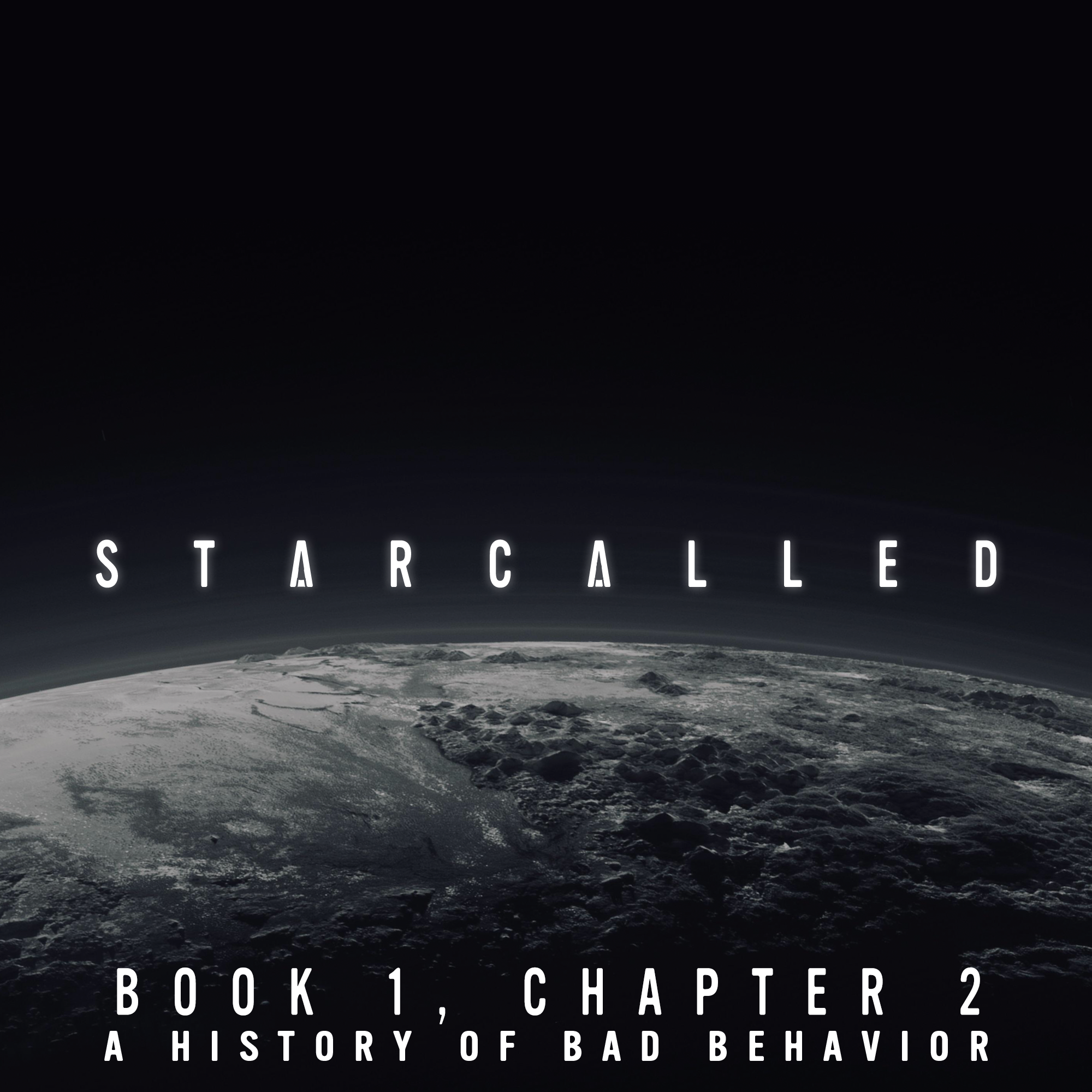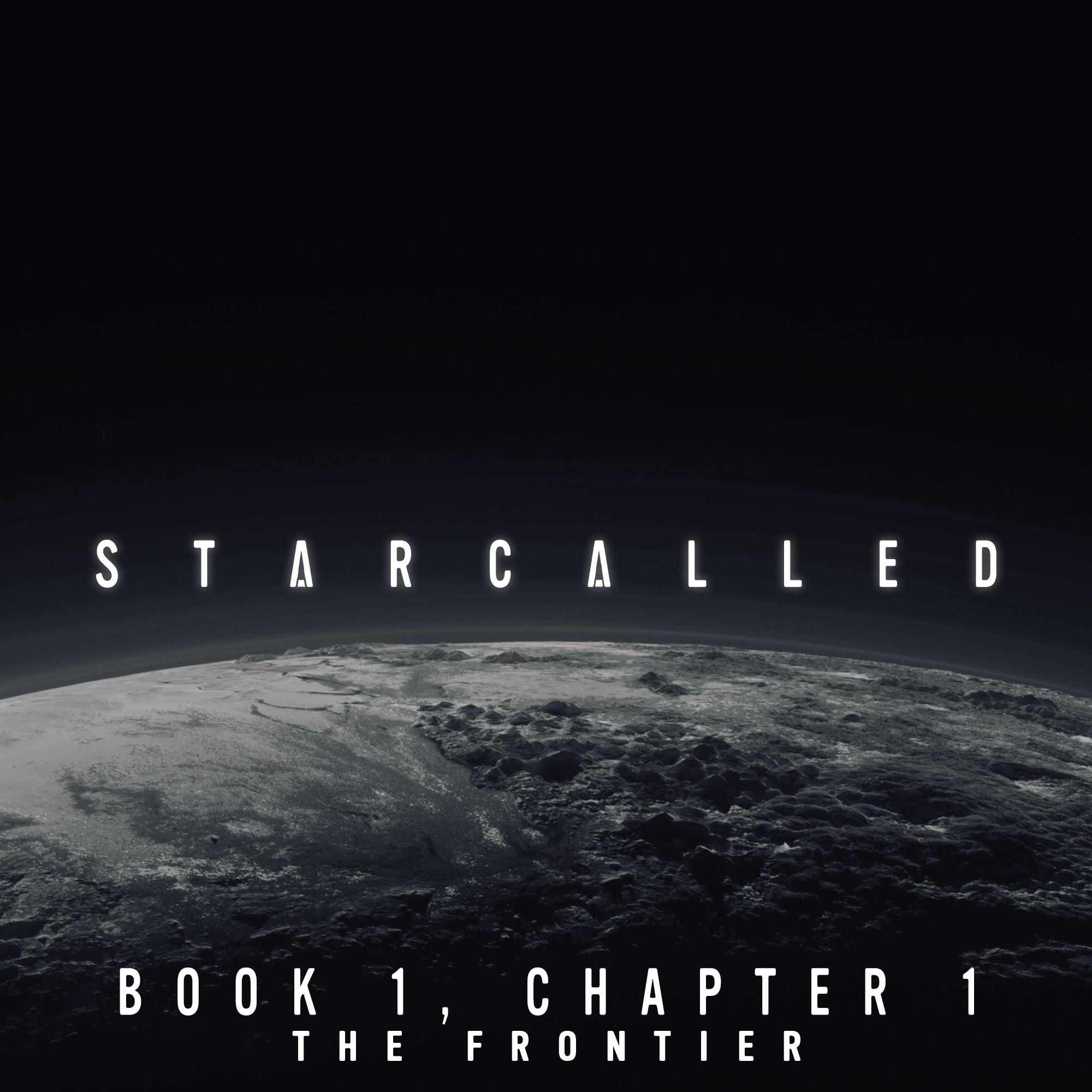The battle for Edari begins, leaving the colonials of the 443rd Fleet Infantry scrambling in the middle of a massive planetary storm. Trapped with the travorian Corvan and the human prisoner Osborn, Acting Chief Science Officer Elona Zoren tries desperately to salvage her operation. Isolated from the rest of the team, Commander Strakker Tygg finds himself in a fight for survival. Accompanied by Lieutenant Saranus Kron, Captain Landris meets with the Holkari council. Kron makes a surprising ally.
A Pilot's Philosophy, pt. 1
While ramping up to producing the first episode of Starcalled, I quickly realized that there is a lot hinging on a show’s pilot. The first episode has to provide, in some form, a complete arc with enough tangible world context to give the audience a sense of the narrative scope. The first episode also determines whether the audience will listen to the second.
It’s got to have enough style to get the audience’s attention and enough substance to hook them.
As a drafting board concept, Starcalled had to be several things:
character focused; with a colorful diversity of core alien characters, we knew Starcalled would need complex and emotional characters with strong personalities who could clash, unite, and grow across the stories; finding ways to feature and develop those characters
operatic; with our core characters so integral to the identity of the show, we knew Starcalled needed to build up over time and evolve from a gritty exploration to an opera level narrative as the characters surmounted more difficult challenges and faced more difficult choices
action focused; we knew from the beginning that Starcalled would be consistent in its delivery of action sequences and maintaining the pacing and tone of an action series
cool sci-fi; from the start it was clear that this was a sci-fi series which had to feature exotic aliens, cool ships and flight sequences, laser guns, space tech, and strange, distant planets
When it came time to writing the pilot episode, I felt that it needed to include elements of the reality and the potential of the project — everything the show was committed to representing with hints of everything else the show could develop to be over time. The pilot had to be the perfect whirlwind of everything that makes Starcalled what it is.
But, still, I felt like there was something more important to consider before putting words on the page.
If the first episode was the audience’s gateway into the rest of the season, the opening scenes — maybe even the opening seconds — of the pilot were the audience’s gateway into the first episode itself. I came to the realization that if the audience is not impressed, curious, surprised, or otherwise hooked in the opening moments of an episode — especially within the first minute of a 40-45 minute affair — then they simply won’t be interested in committing to get to the “good” parts promised to them by the premise of the show.
So the opening scene, even the opening second, of the episode — of the entire show — became the target of my intense focus over the course of several drafts. I experimented with opening with narration from Lt. Kron in the form of entries from his officer’s log or personal journal, but felt that this would force me to either commit to representing Kron’s personal thoughts or recaps through the entire series, thereby putting more of the series’ focus on Kron; commit to representing the personal journals of other characters, thereby creating a method of directly communicating character motivation, purpose, and emotion to the audience rather than leave it to interpretation in-narrative; or drop it after some amount of time.
Ultimately I decided that, in the opening seconds of the episode, the audience would hear a solo variation of the show’s opening theme which would then transition into an action sequence in medias res and continue at a high tension level until the proper opening theme song kicked in.
This conceptual approach helped me guide the writing tremendously, and guaranteed an opportunity to showcase the core principles of Starcalled — exciting musical pieces underscoring dramatic sci-fi action sequences.
Next time we’ll focus in directly on Chapter 1 of Book 1 and break down the process of creating the opening sequence of “The Frontier.”
G.
Book 1, Chapter 3 - The Last Human
Captain Landris offers Osborn a dangerous proposal. Suspended from duty, Lieutenant Kron reflects on his career as a colonial officer. Meanwhile, Elona reluctantly travels to Edari, where her perilous mission with Rider threatens to spiral out of control...
Words on Voices
When designing Starcalled, we knew that humans would be a rare if not extinct species within the universe, meaning that the show would have to be carried primarily by its alien characters. Deciding which species to include in the first season of Starcalled was a relatively simple process. Based on the identities of the central characters — Kron, Elona, Oddie, Rider, Corvan and Osborn — we were able to see which of the many alien races would already be introduced and included by necessity.
Beyond creating the characters, the bigger challenge we faced was creating vocal identities for the races and deciding how to portray them.
The Colonials
When approaching the colonials, it was understood that the primary series focus for the audience would be on this particular species — most of our show is about colonials and the galactic influence of the Colony.
We decided to go with a neutral cadenced, “natural” American accent for them, feeling that coordinating an alien voicing between 10+ people would not only be difficult to maintain across a range of acting experience, but potentially be profoundly irritating for 6+ hours of the show. Giving the colonials a “natural” accent gave the actors a lot of performance latitude to interpret their characters, and gave us the liberty to explore more alien options for the other characters and races without creating an additional emotional barrier between the audience and the colonials.
In-universe, we thought that since the colonials are the lens through which the audience views the world of Starcalled, that the concept would be that the audience is interpreting a “direct” translation from the universal translator probes the colonials use. Conceptually, the colonial voices we hear in the show are clear because we the audience are attuned to hearing translated colonial speech.
The Zaridians
The Zaridians were more of an experiment — being utterly reptilian aliens, we tested a lot of voices that accurately conveyed the their bestial side, but failed to communicate the developmental sophistication of a space-faring species.
Eventually, we settled on an elevated American Southwestern accent. While such an accent always runs the risk of stretching into parody, we felt it was a nod to our home state of Texas and would quickly communicate that the zaridians were a roguish race of outlaws, mercenaries, and bounty hunters working on the fringe of a civilization.
In the studio, we encouraged actors to move their entire bodies in serpentine fashions, in order to inform their performances.
The AI
The development and emergence of virtual, artificial, and synthetic intelligence is a quiet thread which weaves through Starcalled.
Rider was always designed to be a unique character within the Starcalled universe, but needed a foil — a robotic frame of reference for her… less than robotic tendencies.
Larus, the mysteriously ubiquitous virtual interface, was recorded a single line at a time, modulated, then edited together to create a lifeless imitation of a voice. After recording the initial palette of lines for Larus, we wrote future episodes to either directly include the same Larus quotes or include only minimal changes to really emphasize the limited cognitive nature of the program.
Rider, on the other hand, was recorded in full sentences at a time to retain a nearly organic delivery to the lines, but with an added element of amelodic intonations in the performance. The end result gives Rider a sense of insurmountable emotional detachment with frightening glimpses of humanity somewhere deep within.
The Travorians
Knowing that the travorians would be a heavily modulated, easily identifiable species to voice, we decided to focus on getting a steady cadence, a consistent and purposeful musicality, and stoic brevity in the deliveries specifically to characterize Corvan as a pensive, reserved, but formidable character in the Starcalled roster.
It was important to keep the performances on the subtle side, so that Corvan’s more emotional moments would be more impactful, but also to prevent the effects from obfuscating the line deliveries too much.
The Humans
And finally, we knew that the first human character we met would have to make an impact as they represented the most relatable species to the audience. In developing Osborn’s voice, we workshopped our way into a vaguely New England-y accent to give the suggestion of Osborn as an everyman with a limit and also to contrast his voice against the drawls of the zaridians.
Book 1, Chapter 2 - A History of Bad Behavior
After the assassination attempt on Captain Landris, tensions are high aboard the station. Elona tries to balance her new responsibilities and finds herself at odds with Lieutenant Kron. The colonials plan their next move, but the situation is more complicated than they realized...
Book 1, Chapter 1 - The Frontier
Six cycles after the war, the Colony seeks to re-establish itself as a galactic power. Lieutenant Saranus Kron and Dr. Elona Zoren, young officers in the Colonial Fleet, find themselves in a desperate fight at the edge of the civilized galaxy, where the specter of war threatens to cast itself again...





